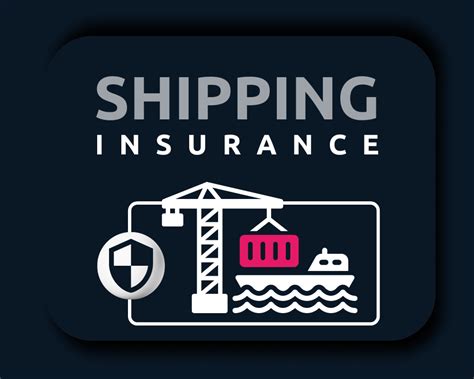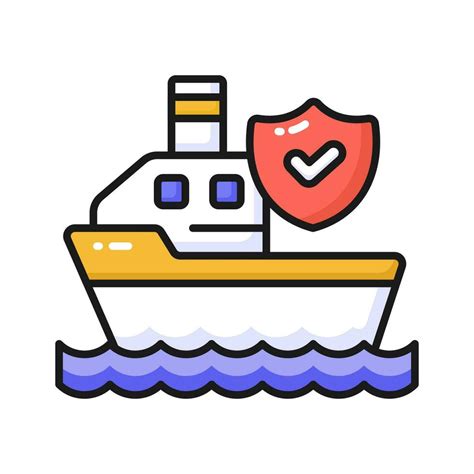Ship Insurance

Ship insurance is a critical aspect of maritime commerce and transportation, providing essential protection for vessel owners, operators, and cargo owners against various risks and potential losses. In an industry where the sea is an unpredictable and often unforgiving force, having the right insurance coverage is not just a wise decision but a necessary one. This article aims to delve into the world of ship insurance, exploring its significance, the types of policies available, and the factors that influence coverage and premiums.
Understanding the Importance of Ship Insurance
The maritime industry is fraught with risks, ranging from natural disasters like hurricanes and tsunamis to man-made hazards such as piracy, collisions, and mechanical failures. Ship insurance acts as a safety net, ensuring that vessel owners and operators can recover financially from losses and continue their operations. It is a vital component of risk management, offering peace of mind and financial stability to those operating in the highly volatile maritime environment.
Moreover, ship insurance is not solely beneficial for vessel owners; it also plays a crucial role in protecting cargo owners and shippers. In the event of a loss or damage to cargo during transit, ship insurance can provide compensation, mitigating the financial impact on businesses relying on sea transportation for their goods.
Types of Ship Insurance Policies

The world of ship insurance is diverse, offering a range of policies tailored to the unique needs of different maritime stakeholders. Here are some of the most common types of ship insurance policies:
Hull and Machinery Insurance
This type of insurance provides coverage for the physical structure of the vessel, including its engines, machinery, and equipment. It protects against losses resulting from accidents, collisions, fires, and other perils that could damage the ship’s hull and its components. Hull and machinery insurance is essential for vessel owners as it ensures the ship’s operability and protects their investment.
Protection and Indemnity (P&I) Insurance
P&I insurance is a unique form of coverage that protects shipowners and operators from various liabilities that can arise during their operations. This includes third-party claims for injuries or deaths of crew members, passengers, or others involved in maritime incidents. P&I insurance also covers pollution risks, legal costs, and other expenses that might not be covered by traditional hull and machinery policies.
Cargo Insurance
Cargo insurance is designed to protect the interests of cargo owners and shippers. It provides coverage for goods being transported by sea, safeguarding against losses or damages that may occur during transit. This type of insurance is particularly important for businesses that rely on maritime transportation for their supply chain, ensuring that they can recover financially in the event of a loss.
War and Strikes Insurance
War and strikes insurance, as the name suggests, provides coverage for losses resulting from war, civil unrest, strikes, and similar events. It is especially relevant in regions with political instability or high piracy risks. This type of insurance can protect vessel owners and cargo owners from the financial consequences of such unpredictable events.
Freight Insurance
Freight insurance covers the earnings and expenses of a vessel during a voyage. It is particularly useful for shipowners who want to protect their revenue stream in case of unforeseen events that could disrupt the voyage. This insurance type can provide financial stability and peace of mind during challenging times.
Factors Influencing Ship Insurance Coverage and Premiums
The cost and scope of ship insurance coverage are influenced by a multitude of factors. Understanding these factors can help maritime stakeholders make informed decisions about their insurance needs.
Vessel Type and Size
The type and size of a vessel play a significant role in determining insurance coverage and premiums. For instance, larger vessels like tankers and container ships often require more extensive coverage due to their higher value and the potential for greater losses. On the other hand, smaller vessels like yachts or fishing boats might have more tailored and affordable insurance options.
Navigation Areas
The areas where a vessel navigates can significantly impact insurance costs. High-risk areas, such as those prone to piracy or frequent storms, will typically result in higher premiums. Conversely, vessels that operate in more stable and predictable regions may enjoy lower insurance costs.
Loss History
A vessel’s loss history is a crucial factor in insurance underwriting. Insurers will carefully examine a vessel’s past claims and incidents to assess its risk profile. Vessels with a history of frequent claims or serious incidents may face higher premiums or even difficulty in securing coverage.
Crew Qualifications and Experience
The qualifications and experience of a vessel’s crew can influence insurance rates. Insurers often view well-trained and experienced crews as a lower risk, as they are more likely to handle emergencies effectively and prevent accidents. On the other hand, vessels with less experienced crews may face higher premiums.
Cargo Value and Nature
The value and nature of the cargo being transported can also impact insurance costs. High-value cargo or cargo that is particularly vulnerable to damage or loss, such as perishable goods, may require specialized insurance coverage and higher premiums.
Safety and Security Measures
Vessels that implement advanced safety and security measures are often viewed favorably by insurers. These measures can include advanced navigation systems, emergency response plans, and security protocols. Investing in such measures can lead to reduced insurance premiums and improved coverage.
Insurer’s Risk Appetite
The risk appetite of the insurance company is another critical factor. Different insurers have varying levels of tolerance for risk, and this can influence the terms and conditions of coverage, as well as the premiums they offer.
The Future of Ship Insurance
The maritime industry is evolving rapidly, driven by technological advancements, changing regulations, and growing environmental concerns. This evolution is also reflected in the ship insurance sector, which is continuously adapting to meet new challenges and opportunities.
Technological Innovations
The integration of technology in maritime operations, such as the use of autonomous vessels and advanced data analytics, is transforming the way ship insurance is underwritten and managed. Insurers are leveraging these technologies to better assess risks, monitor vessels in real-time, and offer more tailored and efficient insurance solutions.
Sustainability and Environmental Risks
With increasing focus on sustainability and environmental responsibility, ship insurance is also evolving to address these concerns. Insurers are developing new products and services to support the maritime industry’s transition to more sustainable practices, such as offering incentives for the adoption of green technologies and providing coverage for environmental liabilities.
Regulatory Changes
The maritime industry is subject to a complex web of international and regional regulations, and these regulations can have a significant impact on ship insurance. Insurers must stay abreast of these changes to ensure that their policies comply with the latest standards and provide adequate coverage for their clients.
Data-Driven Underwriting
The use of data analytics and machine learning is revolutionizing the ship insurance industry. By analyzing vast amounts of data, insurers can more accurately assess risks, identify trends, and offer more precise and competitive premiums. This data-driven approach is enhancing the efficiency and effectiveness of ship insurance underwriting.
What is the difference between hull and machinery insurance and protection and indemnity (P&I) insurance?
+
Hull and machinery insurance primarily covers the physical structure and machinery of a vessel, protecting against losses from accidents, collisions, and other perils. On the other hand, P&I insurance provides broader coverage, including liabilities for third-party claims, pollution risks, and legal expenses.
How can I choose the right ship insurance policy for my needs?
+
Choosing the right ship insurance policy involves a thorough assessment of your unique needs and risks. Consider factors such as the type and size of your vessel, the areas you navigate, the value and nature of your cargo, and your crew’s qualifications. Consult with insurance experts who can guide you through the process and help you find the most suitable coverage.
Are there any specialized insurance options for unique maritime operations, such as offshore drilling or polar navigation?
+
Yes, the ship insurance market offers specialized policies tailored to unique maritime operations. For instance, offshore drilling rigs have specific insurance needs, and insurers provide comprehensive coverage for these operations. Similarly, vessels navigating in polar regions face unique challenges and require specialized insurance to cover risks such as ice damage and search and rescue operations.



